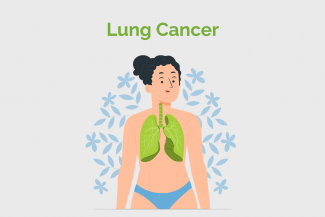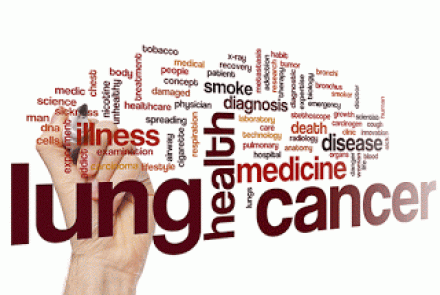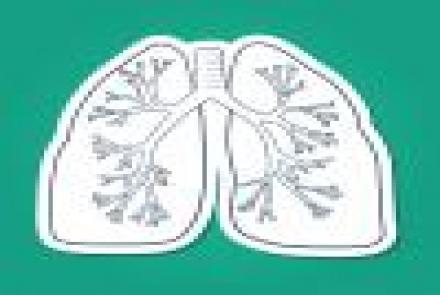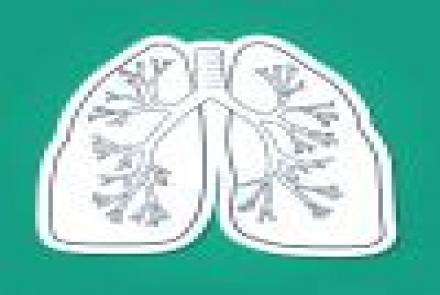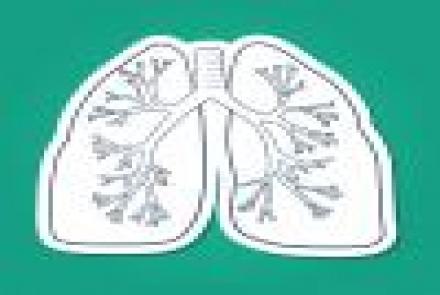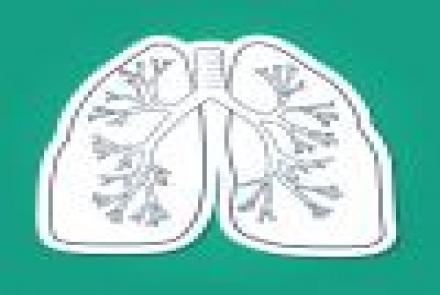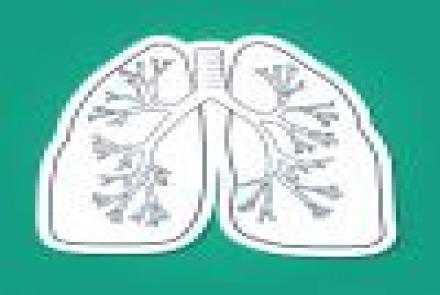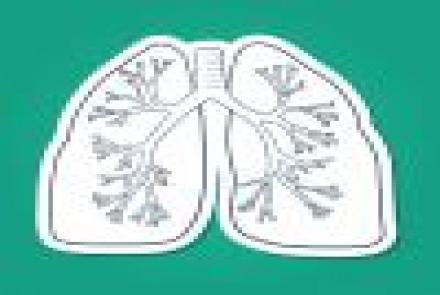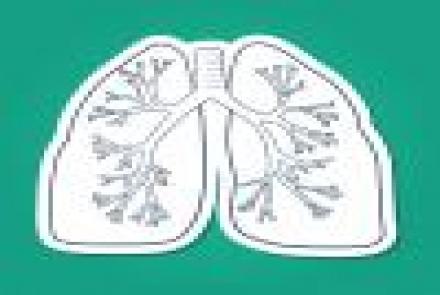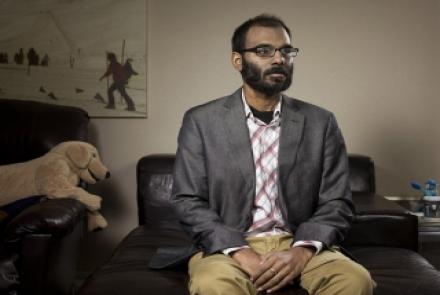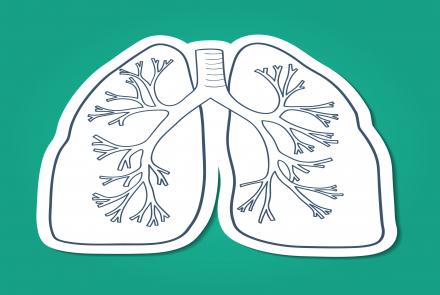Lung cancer or carcinoma of the lung is uncontrolled cell growth in tissues of the lung, usually in the cells lining the air passages. It is the leading cause of death due to cancer worldwide.
Lung cancer is strongly related to cigarette smoking. 90% of lung cancer is caused by smoking though non-smokers can also have lung cancer.
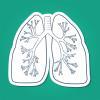
You are at risk of developing lung cancer if, you are:
- A smoker: Smoking is the main cause of lung cancer. Smokers are at 15-20 times greater risk of developing lung cancer than non-smokers. The risk increases with the number of cigarettes smoked each day and the number of years you have smoked. Doctors calculate risk in pack years (number of packs of cigarettes smoked per day multiplied by number of years smoked). Risk increases with even 10 pack years of smoking history. Even if you have quit smoking 15 years ago, you are still at risk. Cigarette smoke contains more than 60 carcinogens, including nitrosamine, benzopyrene, radioisotopes and nicotine. Pipe, cigar smoking and marijuana smoking also increase the risk of lung cancer.
- Live or work with a smoker: Passive smoking is inhalation of smoke from a smoker while living and working together. A smoker’s spouse is at 24% higher risk than a non-smoker’s spouse.
- Exposed to asbestos, radon gas and arsenic: Asbestos is a group of minerals that occurs naturally in the environment as a bundle of fibres. Asbestos is used in many industries such as construction and building, roofing, fireproofing and sound absorption. Radon gas is a natural odourless, colourless radioactive gas that is a decay product of uranium found in the crust of the earth. Radon gas can travel in the soil and reach homes through gaps in the foundation, pipes, drains or other openings.
- Exposed to air pollution: Air pollution from vehicles (diesel exhaust) or industry can raise the risk of lung cancer. Indoor air pollution such as burning of wood, charcoal, dung or crop residue for cooking also increases the risk for cancer.
- Have a family history of lung cancer in close relatives
- Have a history of lung disease: Chronic obstructive pulmonary diseases, pneumonia, tuberculosis increase the risk for lung cancer in non-smokers.
- Have had radiation to the lungs due to cancer treatmnet in that area, such as breast cancer or Hodgkin's.
- Aged between 55 to 79
- Take beta-carotene supplements and are a smoker.
Community
Condition

